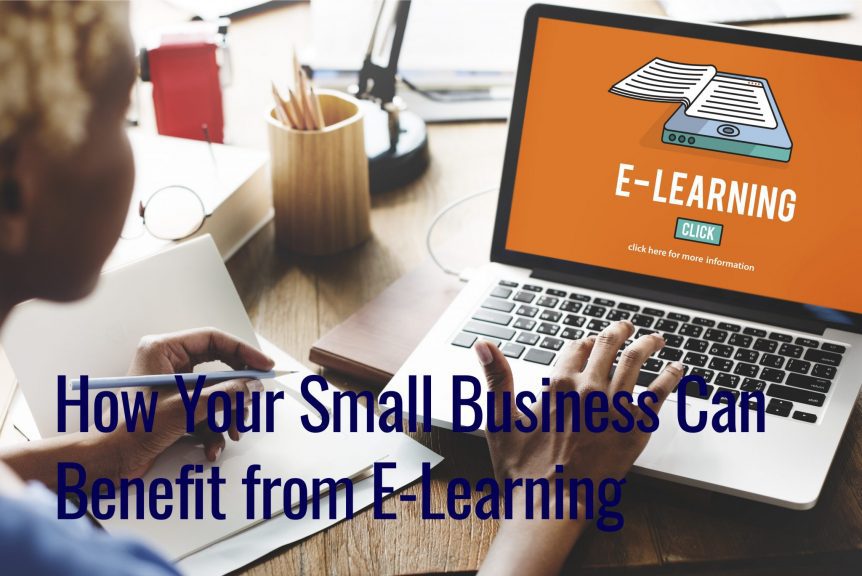How Your Small Business Can Benefit from E-Learning
E-learning is a tool that businesses in all industries are increasingly using to train their staff. This includes everything from training new recruits on systems and processes, compliance training for everyone, and upskilling for existing employees. What about using e-learning in your small business, though?
As a small business, you won’t have the resources of a large organisation. Those resources include everything from human resources to time resources to physical infrastructure – all the things that make it easier to implement an effective training strategy. Not having access to these resources influences your options for implementing training.
E-learning can benefit your UAE business, however.
By using e-learning, you can ensure your team gets the training they need to help you achieve the objectives you have set for your business, plus you can implement this training while keeping costs down.
So, you need to train your staff and e-learning can help. The big question is how.
How can a small business develop and implement a training strategy that includes e-learning elements?
Why the Focus on E-Learning?
Before getting into that question, let’s first look at why you should focus on e-learning. Here are some tangible benefits that e-learning will bring to your business:
- E-learning is an effective training delivery tool so your staff will get the knowledge and skills they need
- E-learning can be quickly delivered to multiple people, regardless of whether everyone works in the same location or not
- You don’t have to spend money on travel to get staff to the training centre, plus your team doesn’t have to spend time travelling
- You don’t need to recruit training experts or instructors
- E-learning delivers consistent quality, something which you may find difficult to achieve if you opt for instructor-led training where the instructor is a manager or senior person in your company
- E-learning also eliminates the need to bring in external training providers
- E-learning modules and training programmes are not only easy to use, but they can also be highly engaging for learners
How to Get Started With E-Learning in Your Small Business
Training Objectives
The first step is to decide on your training objectives. Some examples include:
- To train your staff on compliance issues
- To give your team the skills necessary to keep your company competitive, i.e. training on new technology or systems that have just been introduced that your customers expect you to have knowledge of
- Giving your team the skills they need so they can contribute to the company’s growth and development strategy
- To improve staff retention rates
- Improve productivity and efficiency
- Reducing costs
Another objective you may have for implementing e-learning modules is to give your team access to the information they need when they need it.
For example, maybe your team already has the core skills and abilities your business requires, but they need reference materials so they can get clarification on certain points, find out the next step in a procedure, or check a specification. E-learning modules are much more accessible, they are easier to use, and they are easier to update than alternatives such as manuals or reference files.
Look at Your Team
The next thing you need to do to get started with e-learning in your small business is to assess your team, i.e. the people who will be completing the training as well as those who will be promoting and, ideally, championing the training.
What are their current skills and abilities? What knowledge or skills gaps would you like to fill? What is the attitude of the members of your team to training? Are the members of your team generally comfortable using technology?
Assessing your team and deciding on your training objectives will help you with the next steps you need to take.
Assign Responsibility to a Member of Your Team
The first of those next steps is to allocate someone to take charge of acquiring/creating and then implementing the e-learning modules. As with most things in your business, you will need someone who will push the initiative forward.
Your Options
The next step is to decide how you will get the e-learning courses/modules you need. In general, your options include:
- Buy an off-the-shelf e-learning module
- Hire professional e-learning developers to create a bespoke course
- Develop a bespoke course in-house
The first two options will deliver significantly better results than trying to develop in-house, plus costs over the long term are likely to be lower. In addition, you will get a better return on investment with the first two options compared with the third.
It then comes down to which of the first two options you choose. You should decide this based on the content of the course.
Some compliance, soft skills, and IT-related topics differ very minimally, if at all, from company to company. Therefore, it makes sense to save money by purchasing ready-made, generic e-learning content. To borrow a cliché, there is no point in reinventing the wheel.
For topics that are more specific to your company, you will need to hire professional e-learning developers.
Successfully Implementing E-Learning In Your Small Business
Once you have decided how you will get the e-learning modules you need, you should put a plan in place. This will include a plan for creating the content, particularly if you are working with an e-learning developer.
Your developer will understand how to present the content, but you will need to provide information on your products and business.
One of the results of your plan should be a timeframe, but to ensure the development stays within the timeframe, you also need to make sure you have the necessary resources available for each stage of the development.
This particularly applies to content curation as well as approvals. After all, your developer won’t be able to proceed further with the course if they are waiting for you to give approval.
Finally, your plan should include details of how you will distribute and implement the e-learning training course.
By ensuring you have all these steps and elements in place, you will have a greater chance of success, whatever size of business you run.

